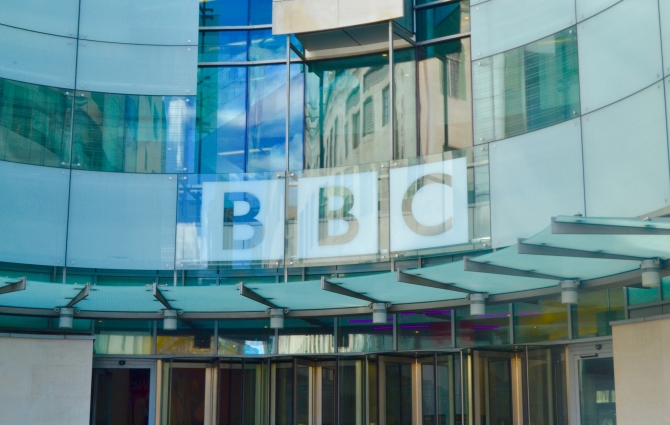 In a follow-up to her post on nuisance calls earlier this year, LSE Visiting Senior Fellow Claire Milne outlines changes she would like to see to help in reducing nuisance for the public in the UK.
In a follow-up to her post on nuisance calls earlier this year, LSE Visiting Senior Fellow Claire Milne outlines changes she would like to see to help in reducing nuisance for the public in the UK.
Once again there’s a crop of news stories about nuisance calls – this time, prompted by the improved enforcement powers for ICO that came into force on 6 April. The Information Commissioner, Chris Graham, welcomes the change, saying “We’ve been pushing for this change for two years, and we’re sure it will make a difference”. What neither he nor other regulators nor the government ever say, in spite of repeated requests, is how much difference this change (or others) could make, or how fast it could have useful effects.
Nuisance calls have been attracting significant attention for around three years now, and a number of potentially positive (and mostly very well publicised) steps have been taken. But there is no clear evidence yet of reductions in nuisance calling. And if there were reductions, data currently gathered may not be adequate to help us understand what has brought them about – it could be combinations of actions for this purpose, or simply market effects. Better measurements of the problem and monitoring of actions are needed.
The best news, which has broken since my last blog post on this topic, got rather less media coverage than might have been expected, perhaps through being deeply buried in the 2015 Budget Statement. On page 100 we find:
2.289 Protecting vulnerable people from nuisance calls – The government will provide a £3.5 million package to explore ways of protecting vulnerable people from nuisance calls. This will include trialling the development and provision of innovative call blocking technology, research and a campaign to raise awareness of how to reduce and report nuisance calls.
At a meeting on 23 March – called jointly by the responsible Minister, Ed Vaizey, and the campaigning MP Mike Crockart, representatives of consumer organisations, telecoms and call-blocking companies – government departments and others were treated to a provisional breakdown of how this £3.5m may be spent. Trading Standards officials gave moving accounts of the problems faced by people who are vulnerable to telephone scams (who have often already been scammed), and of trials showing that call blocking equipment can provide a cost-effective solution. There was broad agreement that this (to date small-scale) initiative has already demonstrated the feasibility of existing technical solutions; that it deserves the resources to reach many more people; and that the Government money should be used as seed funding to attract more funding, and to protect as many people as possible, as quickly as possible.
This is a long-awaited step towards treatment for some of the worst-affected victims of the nuisance call outbreak. It has taken a year and a half to get this far, since Mike Crockart’s All-Party Parliamentary Group included a recommendation on this topic in its report. But it does nothing to reduce the number of unwanted calls reaching the broader public, or to address more generally the nuisance caused by these calls.
Working for StepChange Debt Charity on international practices to combat nuisance calls made me aware of a wide range of further actions that in my view we should consider in the UK. My own priority list now includes:
- Support much stronger international collaboration, aiming to:
- measure nuisance call levels in comparable ways and share intelligence across borders, so that trends can be tracked (could success in suppressing unwanted calls to one destination simply send them to another?);
- block illicit traffic streams as close as possible to their source;
- devise and implement improved technical solutions in and around networks.
- Commit to moving the UK to an opt-in system for all telemarketing, like the one in Germany (inevitably in some years’ time). Study of the UK call centre industry should clarify how best to preserve jobs.
- Meanwhile, promote the Telephone Preference Scheme (TPS), aiming to reach mobile users (who are only 9.5% of registrations on our TPS, compared with 43% of the Australian Do Not Call register and probably at least 45% in the USA) and vulnerable groups. Regulators in India and Pakistan have required mobile operators to publicise Do Not Call options much more actively than occurs in the UK.
- Review enforcement practice by both ICO and Ofcom, to maximise its effectiveness within existing powers and resources (while pursuing greater flexibility longer term, such as is enjoyed by enforcers in the USA and Canada). We should hear from both regulators:
- What reductions in nuisance calls, over what timescales, can be expected from exercising their existing powers;
- How we will know what effects their enforcement has;
- Whether changes in enforcement practices within existing legal and resource constraints could be worthwhile;
- What legal changes and additional resources could help further, and how much difference they would make to the level of nuisance calls.
- Point consumers to advice that has the best chance of being helpful to them in their particular circumstances. For example, standard advice to “sign up to the TPS” doesn’t help the large majority of us who have already done so.
- Consider outlawing contracts made over the phone unless confirmed in writing, as has been done in Norway.
- Consider a special short code to facilitate quick complaints about unwanted calls (on the lines of the *50 initiative in Canada).
- Put in place a co-ordinated effort (across regulators, industry, and concerned consumer groups) to implement chosen measures, with regular reports to all those involved. If it is retained under the next government, the Ministerial Round Table should be an integral part of this.
I note with interest the useful resource page that Ofcom now provides, and that ICO has recently launched a PECR Live Blog to keep devotees in the picture on its enforcement efforts in this area. It looks as if we’re in this for several years yet.
This article gives the views of the author and does not represent the position of the LSE Media Policy Project blog, nor of the London School of Economics and Political Science.





